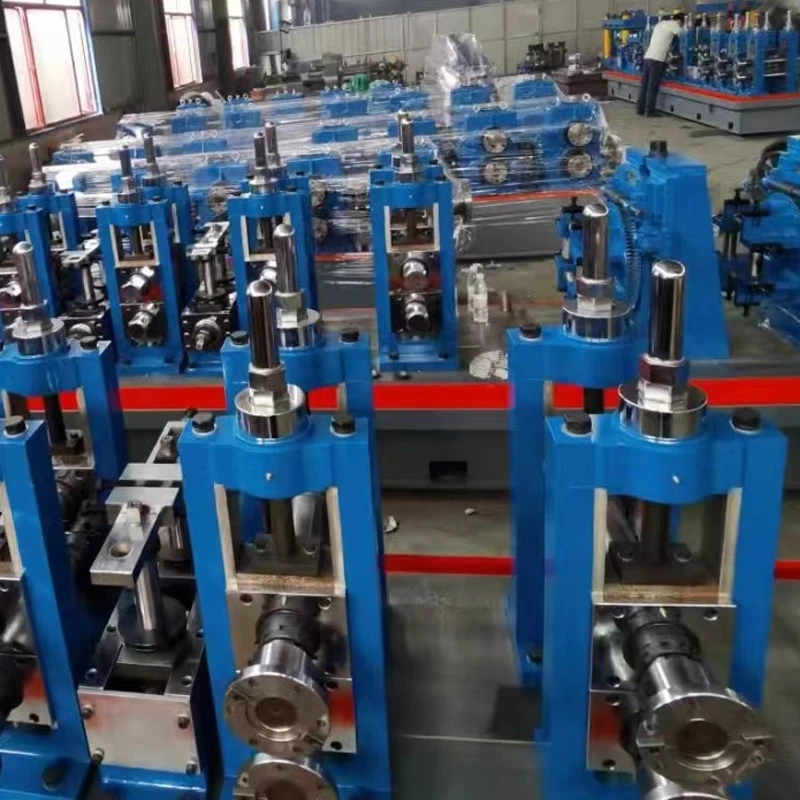sheet metal forming machine price
Understanding the Pricing of Sheet Metal Forming Machines
In the modern manufacturing landscape, sheet metal forming machines play a crucial role in various industries, from automotive to aerospace. These machines are essential for transforming flat sheets of metal into complex shapes, making them indispensable in the fabrication processes of many products. However, the pricing of these machines can vary significantly based on several factors, including the type of machine, its capabilities, brand reputation, and additional features.
Types of Sheet Metal Forming Machines
Sheet metal forming machines come in various types, including press brakes, shears, roll formers, and punching machines. Each type serves a specific purpose and is designed for different applications, which influences their pricing.
1. Press Brakes These machines are used to bend metal sheets into various angles and shapes. The price of press brakes can range from a few thousand dollars for basic models to hundreds of thousands for advanced hydraulic systems with CNC (Computer Numerical Control) capabilities.
2. Shears Shearing machines cut metal sheets and are essential for preliminary processing. Similarly, the cost of shears may vary from low-cost manual models to high-end automated systems, affecting overall pricing.
3. Roll Formers These machines shape metal into continuous lengths of desired profiles, often used in construction and manufacturing. Their complexity and production output capabilities can lead to a wide range in pricing.
4. Punching Machines Utilizing a punching process, these machines create holes or shapes in metal sheets. Advanced machines equipped with CNC technology might come with a higher price tag.
Key Factors Influencing Pricing
Several factors contribute to the price variations of sheet metal forming machines
sheet metal forming machine price

1. Machine Specifications The size, capacity, and functionality of the machine are primary considerations. Larger machines that can handle thicker materials or produce more complex shapes typically cost more due to their advanced engineering and technology.
2. Brand Reputation Established brands with a history of reliability and advanced technological innovations usually command higher prices. Manufacturers that offer warranties and exceptional customer service may offer a better long-term investment, thus influencing initial pricing.
3. Technological Features Machines equipped with the latest technology, such as CNC automation, programmable logic controllers (PLC), and advanced software for design and operation, generally have higher costs. While these features can increase upfront prices, they may lead to increased productivity and efficiency in the long run.
4. After-Sales Support The availability of maintenance services, spare parts, and operator training can also impact the pricing of sheet metal forming machines. Machines with comprehensive support packages may have a higher initial purchase cost but could save money over time.
5. Market Conditions Economic factors such as supply chain issues, material costs, and demand fluctuations can affect machine prices. In times of high demand or scarcity of components, prices may increase significantly.
Conclusion
When considering the purchase of a sheet metal forming machine, it is vital to analyze the requirements of your specific application, budget constraints, and the overall value that the machine will contribute to your operations. While the initial investment might be considerable, the long-term benefits—such as improved efficiency, precision, and the machine’s longevity—often justify the cost.
Potential buyers should conduct thorough market research and compare various models and manufacturers to find the best deal that fits their needs. Taking into consideration not just the price tag but also features, support, and the potential return on investment will lead to a more informed purchasing decision.
Ultimately, the right sheet metal forming machine can significantly enhance productivity and quality in manufacturing processes, making it a critical asset for companies looking to stay competitive in a dynamic market.
-
High Frequency Straight Seam Welded Pipe Production Line-BzZhou Xinghua Machinery Equipment Manufacturing Co., LTD.|line pipe steel&welded gas pipeNewsJul.30,2025
-
High Frequency Straight Seam Welded Pipe Production Line-BzZhou Xinghua Machinery Equipment Manufacturing Co., LTD.|High Precision&Automated SolutionsNewsJul.30,2025
-
High Frequency Straight Seam Welded Pipe Production Line - BzZhou Xinghua Machinery Equipment Manufacturing Co., Ltd.NewsJul.30,2025
-
High Frequency Straight Seam Welded Pipe Production Line-BzZhou Xinghua Machinery Equipment Manufacturing Co., LTD.|Precision Welding, High EfficiencyNewsJul.30,2025
-
High Frequency Straight Seam Welded Pipe Production Line|BzZhou Xinghua|Precision Welding&EfficiencyNewsJul.30,2025
-
High Frequency Straight Seam Welded Pipe Production Line - BzZhou Xinghua|Precision Engineering&EfficiencyNewsJul.30,2025


